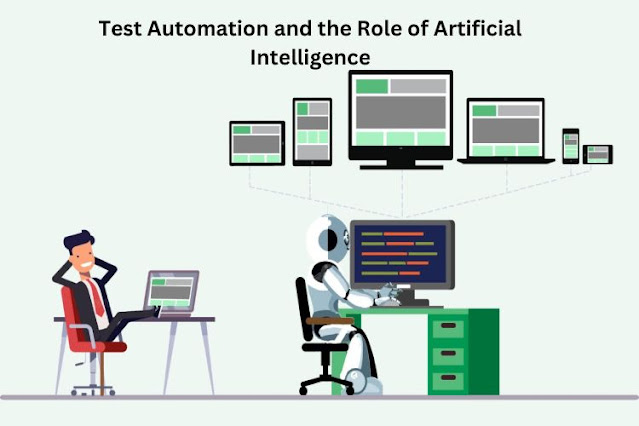Test Automation and the Role of Artificial Intelligence
Introduction
In today's rapidly evolving technological landscape, software development and testing have become crucial components of any successful business. Test automation, combined with the power of artificial intelligence (AI), has emerged as a game-changer in the world of software testing. This article delves into the fascinating realm of test automation and explores the pivotal role played by AI in this domain. From the basics to the benefits and challenges, we'll cover it all. So, fasten your seatbelts and get ready to embark on this exciting journey!
Test Automation and the Role of Artificial Intelligence
Test automation refers to the process of using specialized software tools to automate the execution of test cases and verify the expected behavior of software applications. It aims to reduce human effort, increase efficiency, and improve the accuracy of testing processes. Artificial intelligence, on the other hand, involves the development of computer systems capable of performing tasks that would typically require human intelligence. When combined, test automation and artificial intelligence unleash a plethora of advantages for organizations seeking to streamline their testing processes.
Advantages of AI-Powered Test Automation
- Improved Test Coverage and Accuracy
AI-powered test automation enables comprehensive test coverage by executing a vast number of test cases within a short span of time. Unlike manual testing, AI can tirelessly perform repetitive tasks without losing focus or making human errors. This leads to enhanced accuracy and reliability in identifying software defects and ensuring robustness.
- Faster Time-to-Market
By automating the testing process, organizations can significantly reduce the time required for testing, allowing them to deliver software products to the market faster. AI algorithms can efficiently prioritize test cases based on their criticality, ensuring that high-priority scenarios are thoroughly tested, and potential issues are resolved promptly.
- Intelligent Test Case Generation
AI algorithms can analyze vast amounts of data, including past test results and code coverage, to generate intelligent test cases. This capability ensures that the most critical functionalities of the software are tested, maximizing the efficiency of the testing process and minimizing the risk of defects.
- Enhanced Defect Detection
AI-powered test automation tools can detect complex defects that are often difficult to identify through manual testing. Machine learning algorithms can analyze patterns and anomalies in the software behavior, enabling the early detection of potential issues before they escalate into critical problems.
- Increased Productivity and Cost Savings
Automation eliminates the need for manual intervention in repetitive and mundane testing tasks, allowing testers to focus on more challenging and creative aspects of the job. This not only increases productivity but also leads to cost savings by reducing the number of resources required for testing.
Challenges in Implementing AI-Powered Test Automation
While the benefits of AI-powered test automation are undeniable, organizations may encounter certain challenges during its implementation. It's essential to address these challenges proactively to ensure successful integration.
Test Case Selection
Selecting the right test cases for automation is crucial to maximize the benefits of AI. Organizations need to identify high-value test cases that are suitable for automation and align with their business goals. This requires a careful analysis of the application's complexity, criticality, and stability.
Test Environment Setup
Creating a reliable and scalable test environment can be challenging when implementing AI-powered test automation. Organizations must ensure that the necessary hardware, software, and infrastructure are in place to support the automation framework effectively.
Continuous Learning and Maintenance
AI models require continuous learning and fine-tuning to stay effective and relevant. Test automation systems powered by AI need to be regularly updated with new data and insights to adapt to changes in the software and testing requirements.
Data Quality and Availability
The success of AI-powered test automation relies heavily on the availability and quality of data. Organizations must ensure that they have access to reliable and diverse datasets for training AI models. Additionally, data privacy and security measures should be in place to protect sensitive information.
Skill Gap and Training
Implementing AI-powered test automation may require organizations to upskill their workforce or hire new talent proficient in AI and testing technologies. Bridging the skill gap and providing adequate training to testers is essential for the smooth adoption and utilization of AI in the testing process.
Integration with Existing Processes
Integrating AI-powered test automation into existing testing processes can pose a challenge. Organizations need to carefully plan and strategize the integration, ensuring seamless collaboration between AI systems and human testers. This may involve redesigning workflows and redefining roles and responsibilities.


.jpg)
Comments
Post a Comment